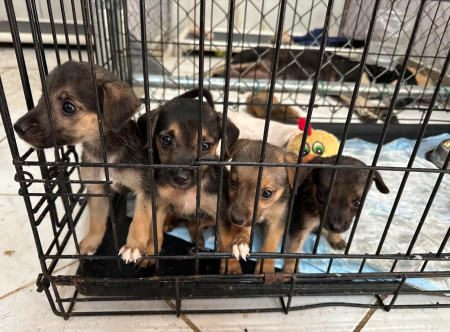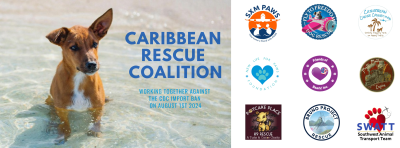Nonprofit Caribbean Dog Rescue Organizations in Crisis Over New CDC Ban

WASHINGTON, June 6, 2024 (Newswire.com) - A consortium of Caribbean dog rescue organizations, made of up Bruno Project Rescue, Inc., Caribbean Canine Connection and New Life for Paws Foundation, and known as the Caribbean Dog Rescue Coalition, is speaking up against a newly imposed CDC ban on importing dogs in the United States. The ban, which was designed to control rabies outbreaks in the U.S., will go into effect August 1, 2024. This ban only mentions dogs as a species, preventing entry until 6 months of age even if they are fully vaccinated against rabies. The ban also excludes dogs from rabies-free Caribbean countries without recognition of their true vaccination status at 16-weeks-old or veterinary health certifications.
The Coalition is imploring the CDC to amend their August 1 ban to reduce the age of imported dogs from 6 months to 16 weeks, or to allow rabies-free countries to be exempt. The Coalition requests this amendment because a 6-month old Caribbean puppy will exceed an airline’s in-cabin weight limit of 20 pounds. The organizations of the Coalition can only rescue dogs by airlifting them off the islands.
This move has sent concern among the Coalition who argue that the new regulation makes it impossible for the adopted animal to travel with the adopter as the required paperwork and tests will take too long to obtain and the dogs will become too big to fly. This will result in the euthanization of thousands of dogs a year who would otherwise be given a new hope through adoption in loving homes, far from the hardship of their origins. All rescued dogs and rescue organizations in rabies-free countries will be unnecessarily harmed by this ban.
The Coalition highlights that existing Caribbean Island rescue health protocols fall in line with the guidelines for required and recommended health care as outlined by the American Veterinarian Medical Association. "With the dog receiving a rabies vaccination at 12-weeks-old and adhering to strict health protocols, we oppose this blanket ban and to wait 24 weeks as the dog will be fully vaccinated 28 days after the date of injection," said Linda Gunville, Lead Flight Coordinator for Bruno Project Rescue, Inc.
"We respect the CDC and understand the ban has good intensions as rabies is a lethal disease. This ban will undo years of hard work that rescuers have passionately committed to these dogs. For decades, volunteers have dedicated their lives to advocating and caring for these vulnerable animals which includes making sure they are medically compliant with export, import, federal, state and airline requirements. We do not stop caring for them just because they’ve left the island, we make sure they are healthy and safe for as long as they live."
The Caribbean Dog Rescue Coalition is composed of fervent volunteers who are committed to the rescue and welfare of the indigenous Caribbean dogs. They are calling for public support to pressure the CDC to reconsider its stance. They urge animal lovers and advocates to join their campaign to protect these vulnerable animals.
Source: Caribbean Dog Rescue Coalition
